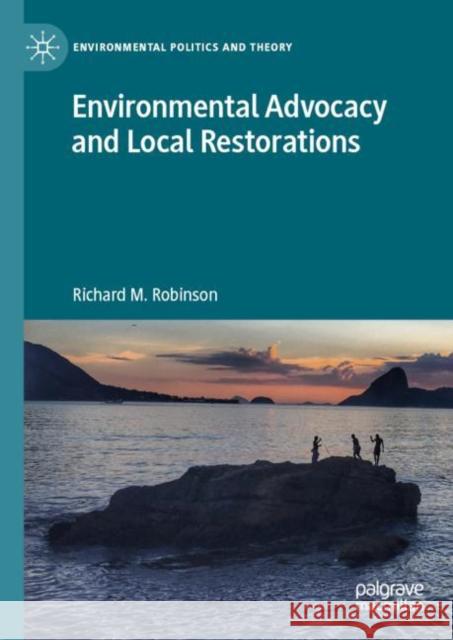Environmental Advocacy and Local Restorations » książka
Environmental Advocacy and Local Restorations
ISBN-13: 9783031284380 / Angielski
Environmental Advocacy and Local Restorations
ISBN-13: 9783031284380 / Angielski
(netto: 535,46 VAT: 5%)
Najniższa cena z 30 dni: 501,19
ok. 22 dni roboczych.
Darmowa dostawa!
This book explores the leadership of state and federal environmental agencies and local environmental groups in restoring the degraded rivers that flow into North America’s Great Lakes and other sites in the northeastern industrial corridor of the US. Robinson examines twenty of the forty-eight sites included in theAreas of Concern Programof theGreat Lakes Water Quality Agreementbetween Canada and the US. These twenty include heavily urbanized locales such as those along the River Rouge and Detroit River, but also more pristine locales such as the St. Louis River that flows through Duluth. Additionally, Robinson examines challenging river restorations within the northeastern industrial corridor which are led by effective local environmental advocacy organizations: the Penobscot Nation of Indigenous People, the Mystic River Watershed Association, and the Housatonic River Valley Association. All of these river restorations are led and managed by the environmental experts of (i) state and federal agencies, (ii) academia, and (iii) environmental NGOs. Local restorations of industrially degraded water bodies now compose a significant segment of the environmental movement and, ultimately, Robinson demonstrates that local environmental advocacy organizationscan help marshal state and local funding for those efforts.
This book explores the leadership of state and federal environmental agencies and local environmental groups in restoring the degraded rivers that flow into North America’s Great Lakes and other sites in the northeastern industrial corridor of the US. Robinson examines twenty of the forty-eight sites included in the Areas of Concern Program of the Great Lakes Water Quality Agreement between Canada and the US. These twenty include heavily urbanized locales such as those along the River Rouge and Detroit River, but also more pristine locales such as the St. Louis River that flows through Duluth. Additionally, Robinson examines challenging river restorations within the northeastern industrial corridor which are led by effective local environmental advocacy organizations: the Penobscot Nation of Indigenous People, the Mystic River Watershed Association, and the Housatonic River Valley Association. All of these river restorations are led and managed by the environmental experts of (i) state and federal agencies, (ii) academia, and (iii) environmental NGOs. Local restorations of industrially degraded water bodies now compose a significant segment of the environmental movement and, ultimately, Robinson demonstrates that local environmental advocacy organizations can help marshal state and local funding for those efforts.











